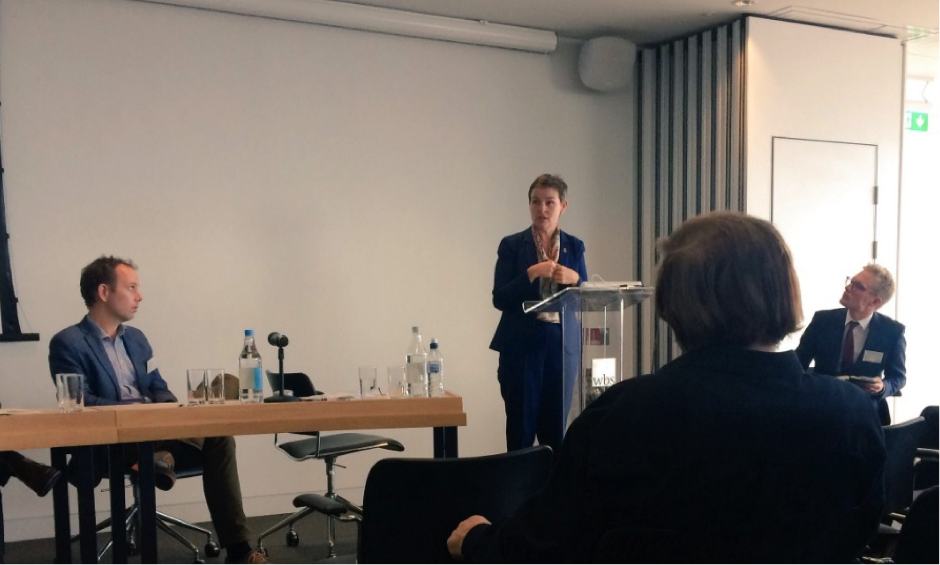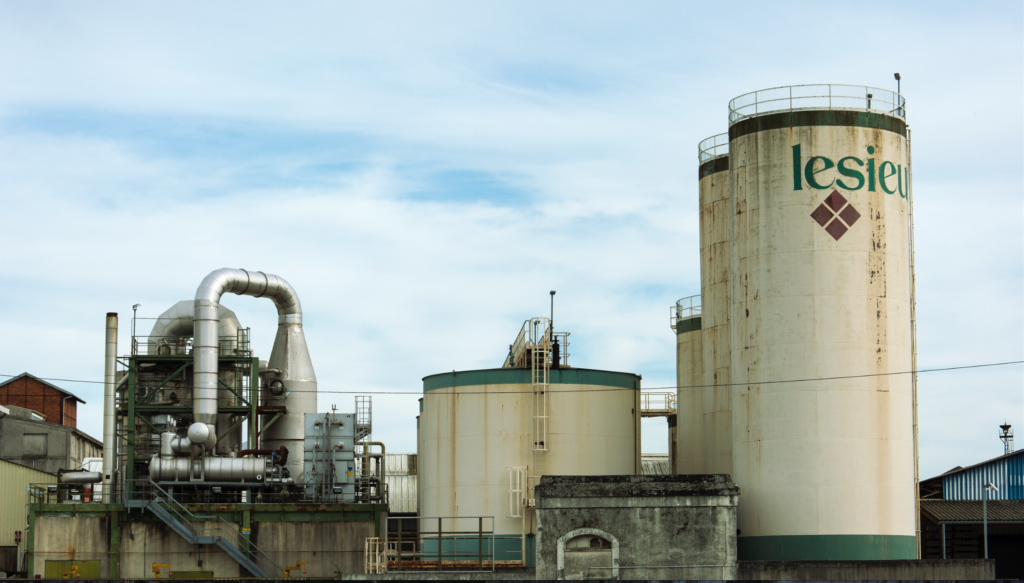Dr Thom Davies, Research Fellow, Department of Sociology, University of Warwick. @ThomDavies
The context of post-Brexit politics was never far from discussion, and the uncertain role that expertise is playing within complex political and environmental debates led to some interesting interventions by the invited speakers as well as members of the audience.
Last Thursday at The Shard in London the Toxic Expertise project hosted our first public engagement event. The theme of the event was ‘Toxic Expertise: Environment, Economy, Politics’, and we were joined by a range of excellent speakers, including serving politicians, academics, and members of think tanks. The objective of the workshop, jointly funded by the ERC and ESRC, was to discuss important challenges in our society and the changing value of expertise, as well as how expertise is used, manipulated, and strategically ignored.
The context of post-Brexit politics was never far from discussion, and the uncertain role that expertise is playing within complex political and environmental debates led to some interesting interventions by the invited speakers as well as members of the audience.
Dr Alice Mah introduced proceedings by discussing her ERC funded project ‘Toxic Expertise’. She talked about how the project is providing the first systematic sociological analysis of the global petrochemical industry in relation to corporate social responsibility and environmental justice. Giving an overview of our initial findings from the five-year project, including fieldwork snap-shots from Louisiana’s ‘Cancer Alley’ and petrochemical sites in China, Alice invited the audience to think about how expertise might become ‘detoxified’. A recently published briefing paper was also available, which gives an overview of the project.
‘The decision to leave the EU will affect few areas of policy more than the environment’- Mary Creagh MP
Mary Creagh MP, who has been Labour MP for Wakefield since 2005, gave the first keynote presentation during the opening panel session. As chair of the Commons Environmental Audit Committee she has been at the forefront of environmental issues for some time and was very well placed to comment on the day’s theme. She has previously commented on the environmental threat that ‘hard’ Brexit poses, and reiterated this in her talk, stating that ‘the decision to leave the EU will affect few areas of policy more than the environment’. She further pressed this point by saying that leaving the EU will be the biggest administrative challenge since the Second World War. Indeed, she cited Brexit as a key example of how ‘this government has ignored the advice of experts’. ‘Politicians are brilliant at language’ she explained – noting the battle of words surrounding how Brexit is described – but Politicians are not always good at listening to and following the advice of experts, she described.
 Figure 1 ‘Everything is political’ says Mary Creagh MP as she gives a keynote talk at the Toxic Expertise event in the Shard. Photograph by Angeliki Balayannis.
Figure 1 ‘Everything is political’ says Mary Creagh MP as she gives a keynote talk at the Toxic Expertise event in the Shard. Photograph by Angeliki Balayannis.
On expertise, she reminded the academics in the room and the other gathered experts that ‘there is no point being a scientist if you can’t communicate with lay people’. Mary drew attention to the engaging environmental work of her co-panellists Dr Erik Van Sebille (Imperial) and Professor Frank Kelly (King’s College) as strong examples of good scientific communicators. She also gave an interesting example of an ‘unholy coalition’ between herself and the Daily Mail, where she managed to help push through legislation this summer that outlawed toxic microbeads from polluting the ocean. You can read the Daily Mail coverage of this unlikely environmental justice collaboration here.
‘These particles are very small and they get to parts of your body that they shouldn’t be’ – Dr Erik Van Sebille, Imperial College
Following nicely from this talk, Dr Erik Van Sebille, an oceanographer and climate scientist from Imperial College, gave a fascinating presentation titled ‘A picture and a thousand words: how images of the “islands of trash” have skewed the discussion about microplastic pollution in the ocean’. In his talk Erik described the global mass of tiny plastic particles that are constantly being washed into the world’s oceans. He said that the ‘we need new mental images’ to come to terms with this environmental crisis, stating that images of floating piles of plastic waste are misleading. Instead he suggested that the problem is far worse than these images can convey, with more than 250,000 tonnes of plastics at the upper level of the ocean and an unknown quantity beneath. ‘These particles are very small and they get to parts of your body that they shouldn’t be’ he explained. He suggested that the crisis could be re-framed from a purely environmental issue to one that acknowledges the impact micro-plastics have on the food chain. He explained that it is unusual today to find marine animals that do not contain tiny plastic particles in their bodies.
‘Air Pollution: just because its invisible should not mean it’s ignored’- Professor Frank Kelly, King’s College London
Following Erik’s talk, Professor Frank Kelly from King’s College London who is chair of Environmental Health, gave a talk titled ‘Air Pollution: just because its invisible should not mean it’s ignored’. This presentation, which took us from the sea to the atmosphere, focussed on his research in London and other polluted cities where he has looked at long-term exposure to air pollution. Frank told the audience how air pollution causes the premature deaths of 29,000 people in the UK. Yet he also said that the deaths from pollution are only one side of the coin, and ‘hides the many other impacts’ that effect standards of life, such as hospital visits and increased respiratory problems. His pollution maps of London reminded me of John Snow’s cholera maps from the mid-1800s. Just as Snow removed the handle of a contaminated water pump to prevent cholera in the Victorian era, Frank offered an air pollution solution, describing how controlling traffic and creating pedestrian-only days could significantly improve people’s health.
‘Experts help us to think what the problems are, but we cannot only depend on this’. – Dr Jennifer Gabrys, Goldsmiths
Dr Jennifer Gabrys from Goldsmiths, University of London acted as a discussant for the first panel. He work on the project Citizen Sense had many crossover’s with Professor Frank Kelly’s use of sensors to monitor air pollution in London. She showed the audience one of her Dustbox sensors that she uses for research on ‘urban sensing’ in South London. ‘Experts help us to think what the problems are’ she explained, ‘but we cannot only depend on this’. She discussed the importance of engaging citizens themselves in own environments as a means of creating positive change. She invited the audience to think about how we might bring lay perspectives into environmental debates.
‘Sometimes the truth takes longer’- Neena Gill MEP
The second panel was titled ‘Environment, Politics, and Economics’ Labour MEP Neena Gill gave the keynote presentation. She talked directly about the EU referendum and Gove’s now infamous comment about how the UK public has – in his view – ‘had enough of experts’. Neena explained how this dismissal of expertise during the referendum debate ‘turned the referendum’ through an ‘anti-truth campaign’ that we are also witnessing in the USA. She talked about the struggle to put across complicated and nuanced arguments during the referendum campaign because of the media’s desire for punchy soundbites. Sometimes the ‘truth takes longer’, she explained. She predicted that the economic impacts of Brexit will hit fully next year and ended her talk by quoting a song by Billy Joel, stating “We didn’t start the fire but we are going to have to fight the flames”.
‘Everyone in the room needs to stand up for regulation’- David Powell, New Economics Foundation
David Powell, from the think tank New Economics Foundation, which promotes social, economic and environmental justice, gave a presentation titled: ‘Economics, regulation, and the toxification of expertise’. He took up Neena’s Brexit theme and reminded the audience that in the referendum ‘people voted clearly against their economic interest’. He noted that ‘increasingly policy around complicated things is being made by converting everything into a number…we see ridiculous numbers on both sides of campaigns’. In light of Brexit, David called upon the audience to become defenders of regulation, which is often misrepresented as unnecessary ‘red tape’, as opposed to laws that defend social and environmental rights. He explained that years of corporate lobbying has meant that every government department has a specific policy to cut regulation. ‘Everyone in the room needs to stand up for regulation’ he said, and warned against the threat of losing Europe’s precautionary principle.
‘Trade does not just effect business and profit, it now relates so much to so many areas, that this limiting of expertise to one particular area becomes very toxic’.- Ruth Bergan, Trade Justice UK
Ruth Bergan from the Trade Justice Movement provided the third presentation of this final session, giving a talk titled ‘Groupthink: policy processes that allow trade to trump climate’. In her discussion of trade negotiations, she drew upon the idea of ‘Groupthink’ – a psychological phenomenon that excludes voices outside the immediate circle and thus rejects other perspectives. Ruth discussed how trade talks are given priority over every other issue. Strange situations occur, where trade and climate discussions are ‘happening in parallel, but never the twain shall meet’. By only talking about trade during global summits and international forums, all other issues are side-lined by governments, despite being intimately connected with how countries trade with each other:
‘Yet this falls flat because trade has expanded to cover many aspects of daily life where you need to look beyond pure trade where you need to gather experts from beyond pure trade’, Ruth explained. ‘Trade does not just effect business and profit, it now relates so much to so many areas, that this limiting of expertise to one particular area becomes very toxic’.
She explained how expertise per se is not toxic, but rather the way any expertise that is not directly related to trade ‘gets triaged at such an early stage, then it becomes toxic’. She concluded that we need to think about trade more holistically and from angles and take on board different expert perspectives beyond the ‘groupthink’ of trade negotiators.
‘Expertise goes from being toxic to being sceptic. You have to change the nature of the debate sometimes’- David Elmes, Warwick Business School
Professor David Elmes from Warwick Business School acted as discussant for the public engagement event. He talked about the danger of applying spurious economic models to make predictions about the future, as both sides of the EU campaign did before the referendum. He said that this kind of analysis is like ‘building on sand’. One really should question the expertise these models bring.’ Instead he made the point that ‘sometimes expertise needs to be refreshed’ and new perspectives need to be found. He suggested that some forms of expertise, even if they are factually correct can sometimes become boring and stagnant. When this happens, he explained, ‘expertise goes from being toxic to being sceptic. You have to change the nature of the debate sometimes’.
‘What gives you hope?’ – Angeliki Balyannis, geographer
At the end of the event, which had been a fascinating but sometimes sobering account of the perilous, toxic and ‘sceptic’ role that expertise plays in society, an audience member – geographer Angeliki Balayannis – ended on a lighter note, asking the panel ‘What gives you hope?’ David Powell’s response, that it gives him hope that climate change has gone from the scientific fringes to a universally accepted scientific fact within only a few years was reassuring. It was a reminder of the important role that experts have, and continue to have in our changing society.
Featured image: photo credit André Robillard, unsplash.com
